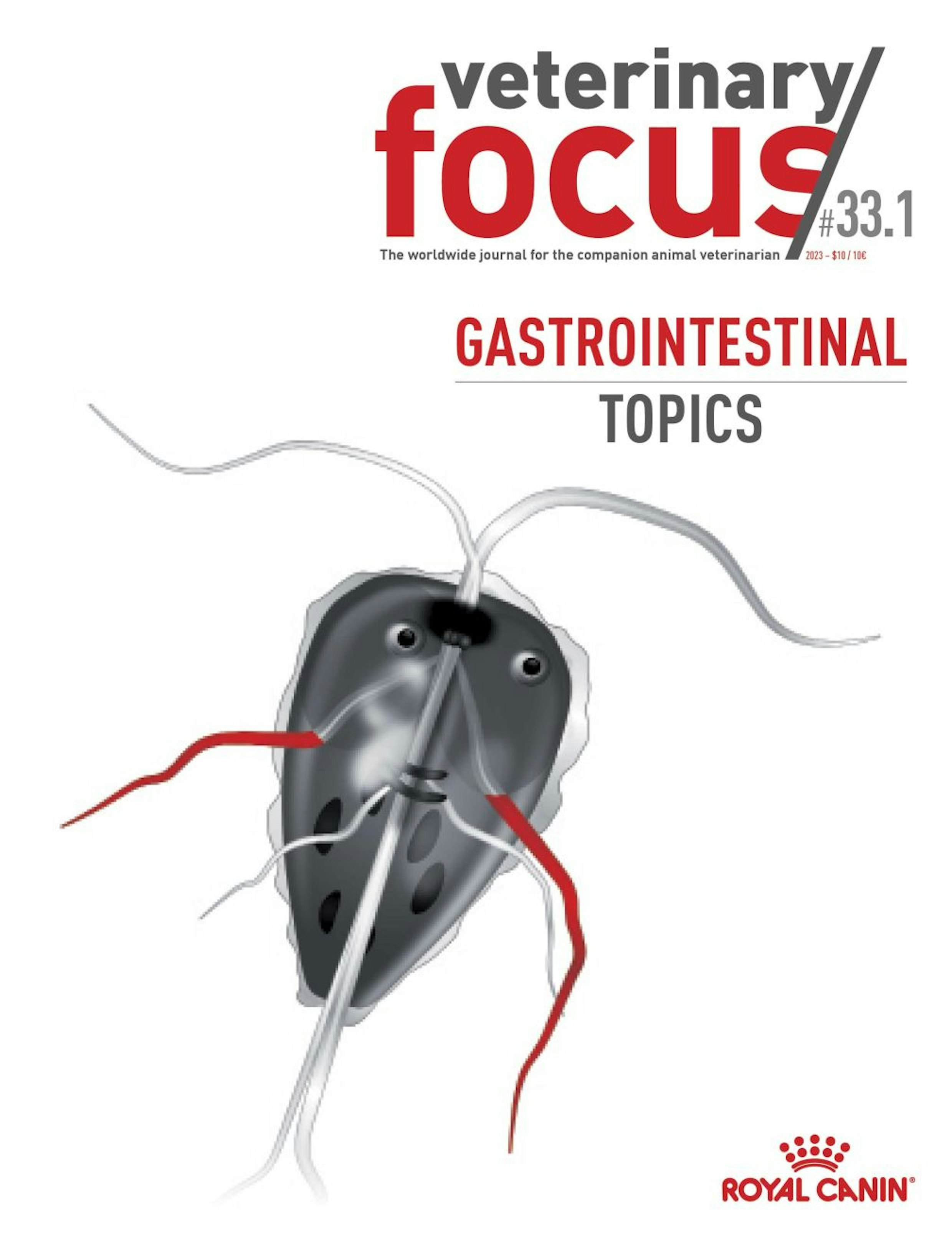Canine microbiome dysbiosis
It is increasingly being recognized that a dysfunctional intestinal microbiome can be at the root of many gastrointestinal disorders; this paper discusses the diagnosis and therapeutic options for dysbiosis cases.

It is increasingly being recognized that a dysfunctional intestinal microbiome can be at the root of many gastrointestinal disorders; this paper discusses the diagnosis and therapeutic options for dysbiosis cases.
Gluten-free diets are currently popular for both humans and dogs, but actually how common are gluten-related disorders? This paper compares and contrasts what we know about them in both species.
Feline exocrine pancreatic insufficiency is more common than generally realized; this article offers pointers for successful diagnosis and treatment of the condition.
Is the constipated cat a simple “10-minute consultation”? Anything but, says Jonathan Lidbury, as he discusses a structured and careful approach to all such cases.
There is now strong evidence that there are significant links between the gut and the kidneys, and that gastrointestinal health may be a key consideration when treating kidney disease, as discussed in this article
Protein-losing enteropathy is a heterogenous syndrome in dogs, which means that the clinician should approach each case as an individual.
Giardia infection is commonly identified in dogs, but deciding if it is a significant finding, and selecting the best treatment approach for a given situation, can often raise questions in practice; this article aims to provide some answers for the clinician.
Addison’s disease may not be the first diagnosis that comes to mind when a dog with gastrointestinal signs presents, but this possibility should not be dismissed, as Romy Heilmann describes.
Fecal microbiota transplantation is starting to be seen as a viable option to treat various acute and chronic gastrointestinal problems in dogs, as Linda Toresson explains.
